Egypt protests: Photo diary of an American tourist
- Published
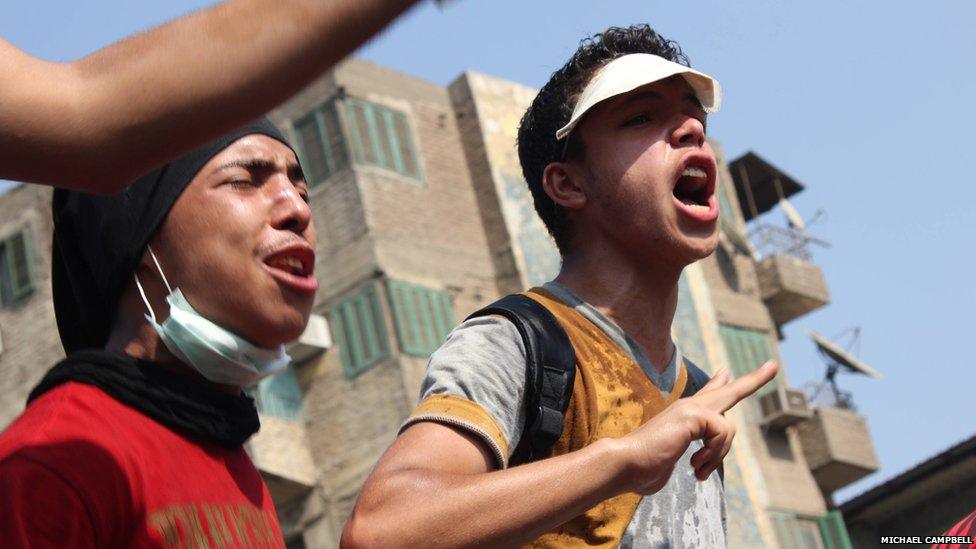
Egypt experienced one of its bloodiest days on Wednesday when security forces broke up protest camps in Cairo. At least 638 people are known to have died. International politics graduate Michael Campbell, 25, from Dallas, Texas, went to see what was happening and documented what he saw on Wednesday in nearby Nasr el-Din in Giza.
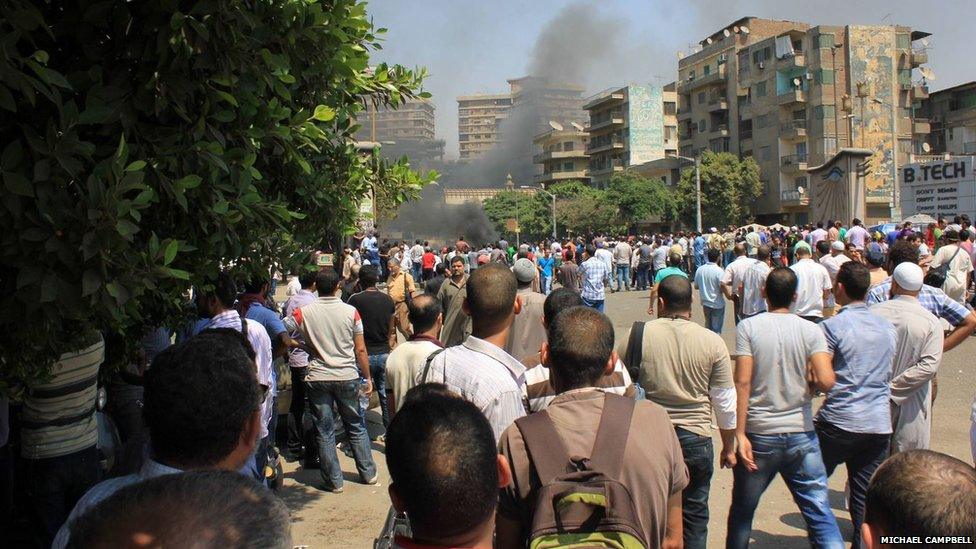
He said: "From what I'd read in the media, I expected all the protesters to be ardent Muslim Brotherhood and pro-Morsi supporters. About half of the ones I spoke to were. But the other half were indifferent about him. They said they were protesting against the military's intervention in politics and what they saw as a military coup."
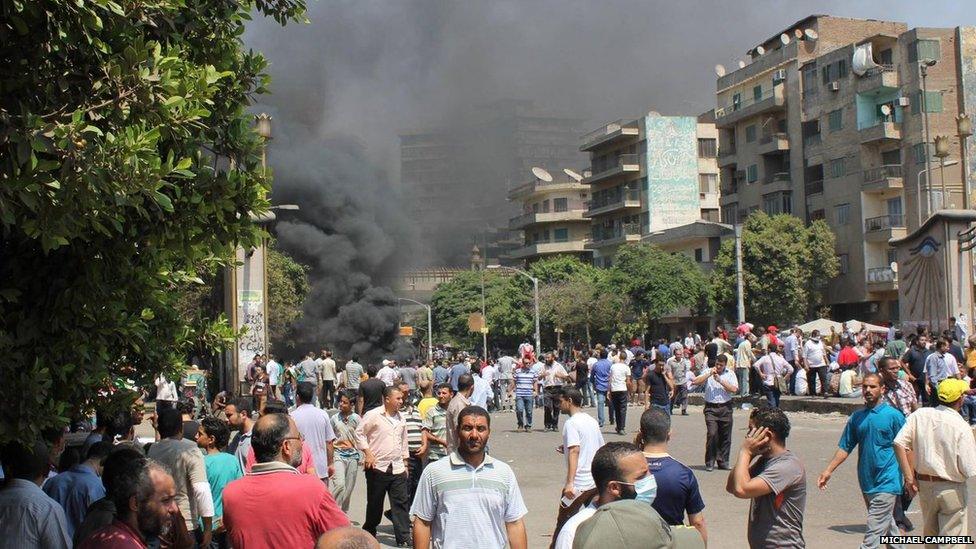
"When I came out of the metro station I heard a lot of gun fire and a loud boom. There was a big plume of thick dark smoke further down the street and a large crowd had gathered."
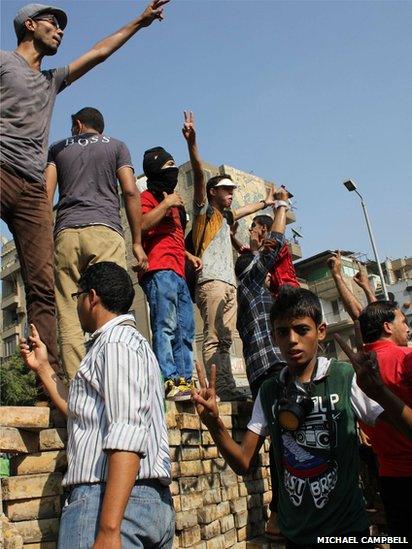
"From what I saw, there wasn't much violence on the side of most of the protesters. I didn't see any of them with a weapon all day."
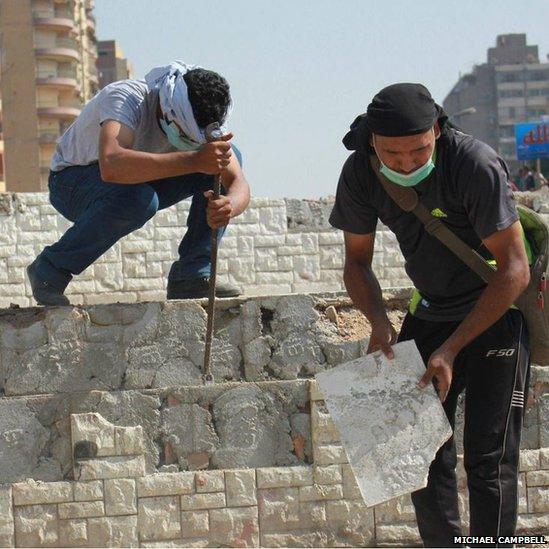
"The only thing I saw was people smashing walls to throw bits of rock at the military. There were women and children too helping to break the rocks into smaller pieces."
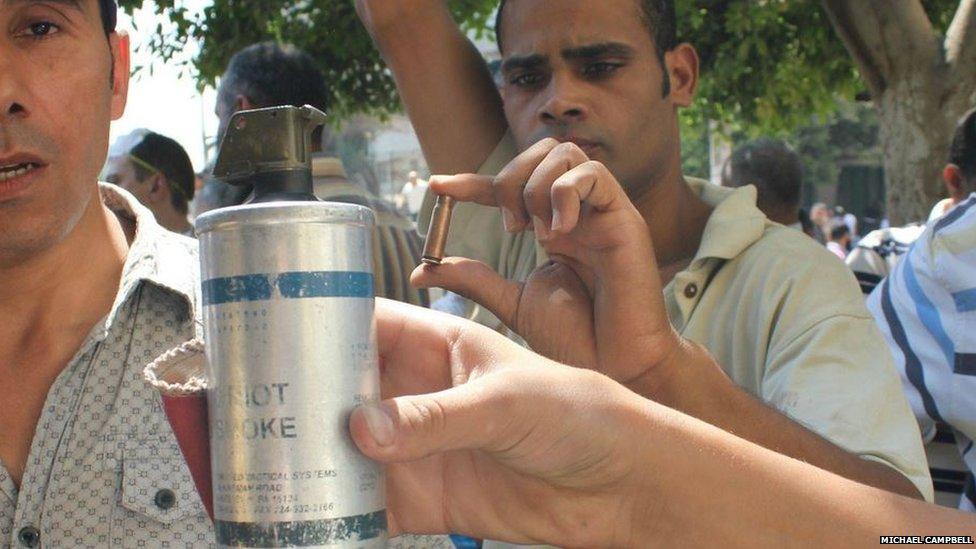
"The military was on the bridge and had snipers in high rise towers firing down. At first the protesters didn't want me to photograph them as they thought I was a government spy, but after I explained, they formed a human shield to protect me so that I could show the world how the military was attacking unarmed civilians."
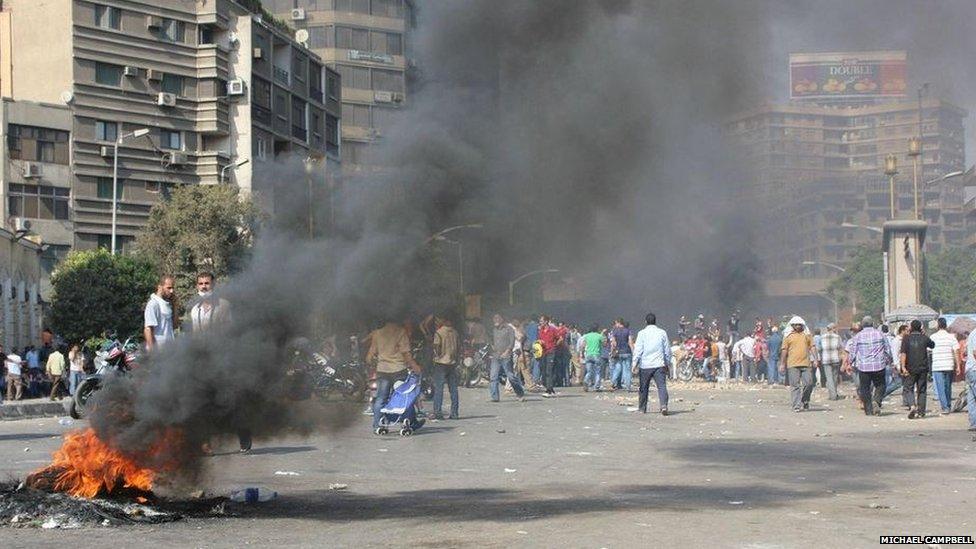
"There were piles of rubbish and tyres burning in the streets. The protesters said somehow the smoke seemed to counteract the chemicals in the tear gas and I have to say, I think it did."
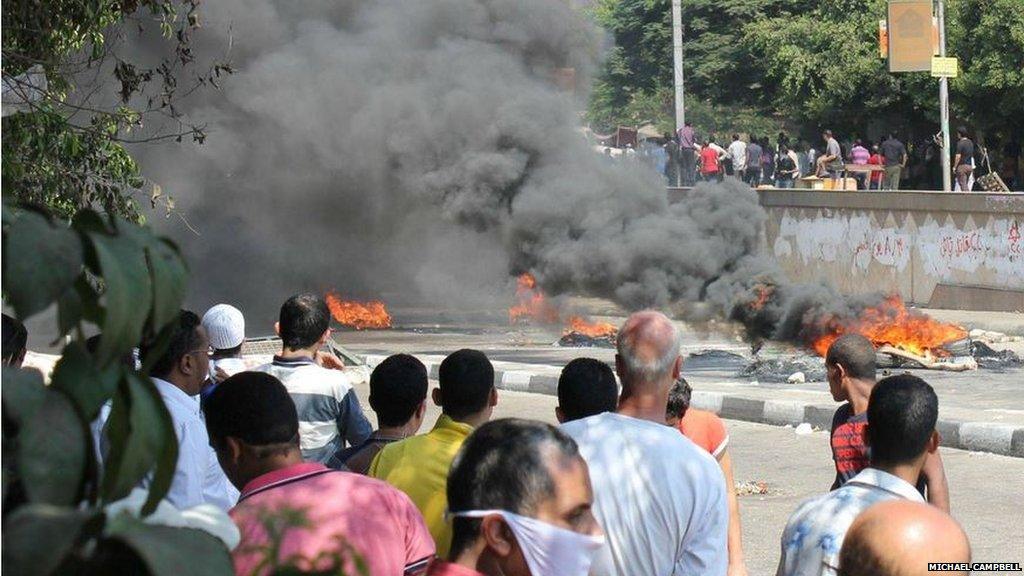
"The burning rubber especially made the smoke really thick and black which helped to screen the protesters from the soldiers and the snipers. It was still quite scary though, because you could hear the bullets ricocheting around even though you couldn't see them."
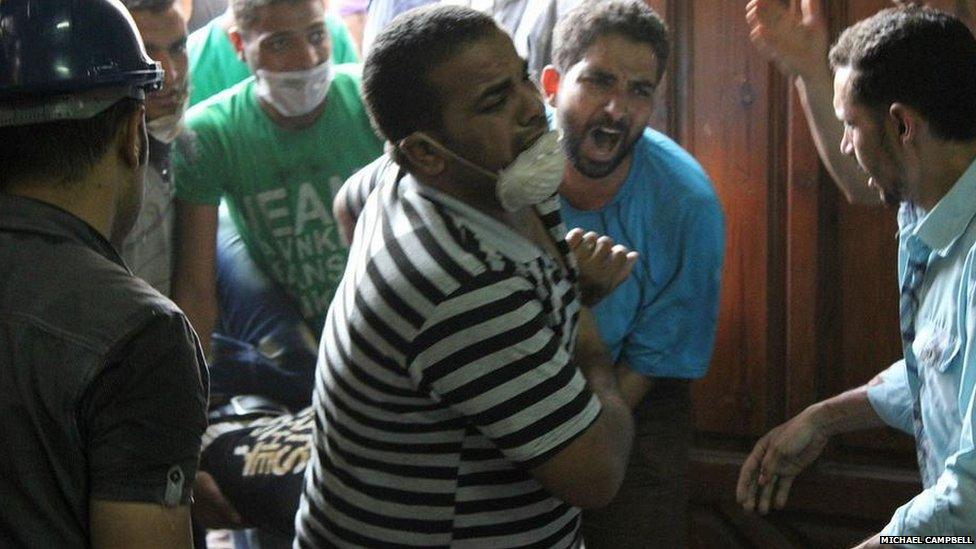
"One of the mosques was turned into a make-shift hospital, but it soon got filled up, as they kept bringing more and more people in. Even after they cleared the furniture out of the way, you could see they were running out of space to put everyone."
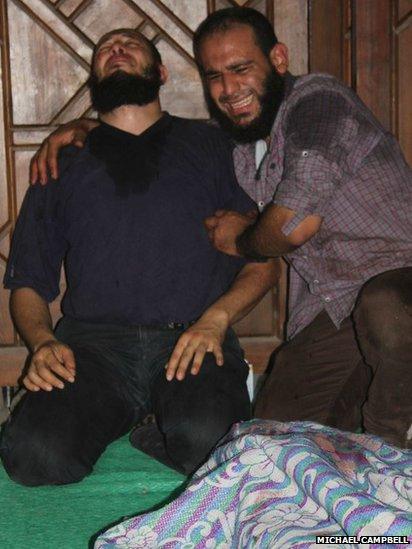
"Although it was shocking to see the bodies being brought in, in a way, I felt worse for the relatives because they were still in pain and suffering."
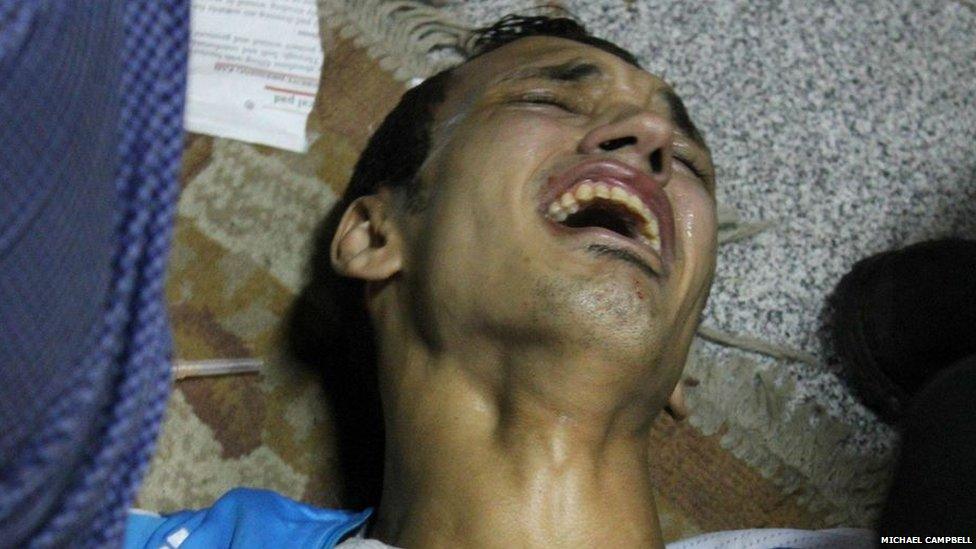
"It was incredibly moving to see these people who were prepared to stand up for what they believed in, to the point of dying for their beliefs."
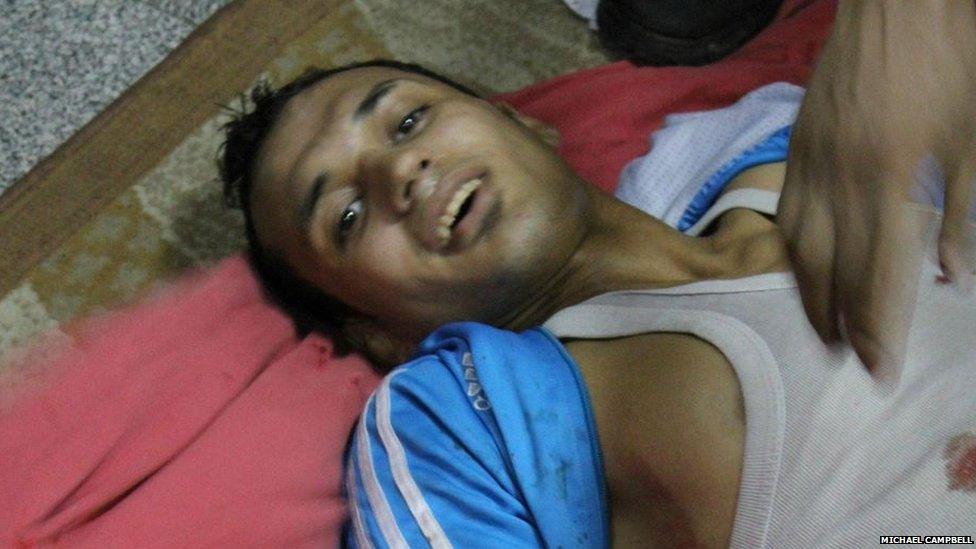
"I spent about five hours in the mosque as they were kind enough to let me take photos of them, some in their last moments. The protesters were so desperate to get their story heard and for me to pass on what I saw, that they begged me to keep taking their photos."
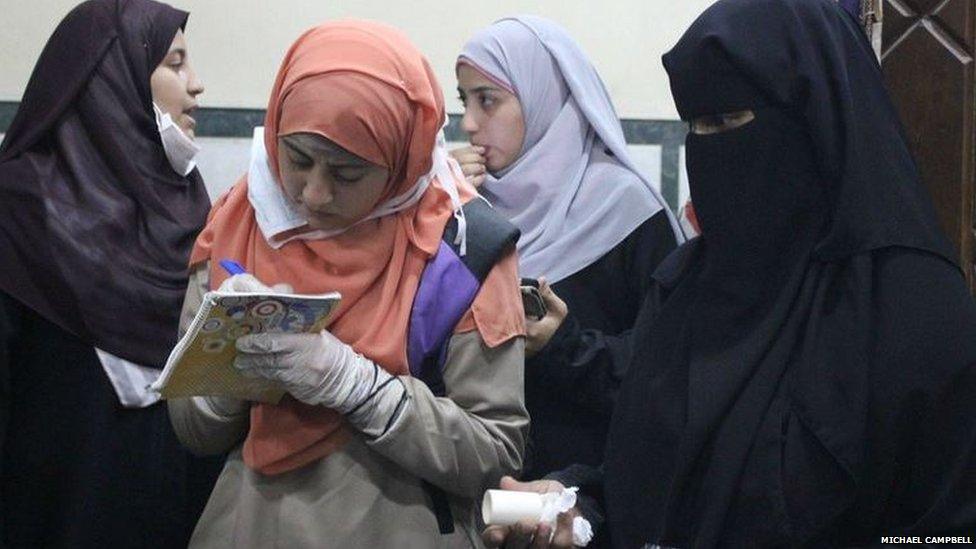
"It wasn't just men protesting either, some of them were women and some of them came into the mosque to help as nurses."
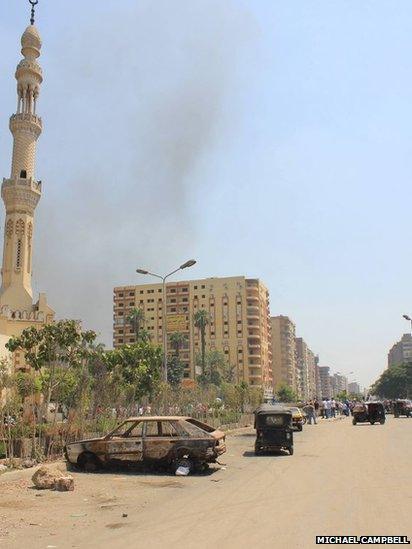
"It's quietened down a lot now because of the curfew. My hotel is near Tahrir Square and when I first arrived here there were loads of people in the hookah bars til late but now there's about five people in the street. There's meant to be pro-military protests happening in Tahrir Square on Friday and I don't know what will happen then."
- Published16 August 2013
- Published15 August 2013